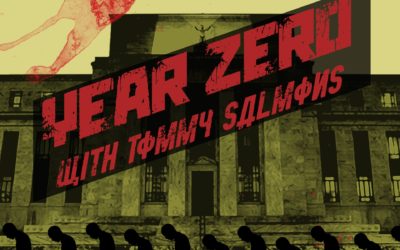Recently, I wrote about why I think war is not a morally legitimate practice. In my opinion, criminal and civil law take morality into account, whereas the law of armed conflict deliberately suspends normal moral considerations to facilitate combat. This is interesting when you consider traditional American political ideas. The revolutionary ideas about government which were applied after 1776 were applied domestically, but were not applied in the realm of foreign affairs.
The American revolutionary ideal for government contrasted against the European status quo. According to traditional European ideas of government, the monarch or prince possesses a divine right to rule. Only the will of the monarch – hopefully combined with the grace of God – can hold back the ruthless, animalistic passions of humanity in our war of all against all. Only the absolute authority of the prince can produce justice, and create a moral commons. As a consequence, legal systems hold as a first principle the absolute power of the monarch, prince, or parliament. This is true domestically, but translates into the Westphalian model of states when it comes to foreign policy. If the authority of the prince must be absolute, then each state must have absolute authority within its own borders. The concept of state sovereignty is analogous to the premises of Leviathan.
The American revolution rejected the sovereignty of the King. Its general premise said that human beings possess rights which come from a source that precedes political authority, and that political authority is a discrete creation of the people in order to service the protection of those rights. A consequence of this premise is a constitutional order replete with checks and balances, strong proscriptions against the government and its agents, and explicit mention of the inherent rights of the people (9th and 10th amendments).
Some American politicians and political thinkers tried to apply the premises of the revolution to the international realm. Jefferson advanced a foreign policy of “Peace, commerce, and honest friendship with all nations…”. Washington himself warned against entangling alliances, an old-world folly. This doctrine, called non-interventionism, had been a staple of American foreign policy – at least rhetorically – until it was completely and permanently rejected after WWII.
The premise of non-interventionism is simple. War, alliances and foreign policy are all the prerogatives of a prince. War’s moral basis requires the assumption that at the margins of a state’s power morality doesn’t apply, because morality proceeds from the power of the sovereign. Many American thinkers of the post-revolutionary era understood this. They argued that war itself was an un-American phenomenon, a bloody relic of old world politics. Non-interventionism is a policy whereby the non-Westphalian American government interfaces into the system of European powers. America adopts the diplomatic practices of Europe to facilitate communication, but refuses to exercise a specific foreign policy – that is, pursue the prerogatives of the American state abroad by violence. At least, when the government is pursuing a deliberate policy of non-interventionism. (an interesting expression of early American anti-war sentiment is the American Peace Society, which sadly disbanded because of its mostly Northern members’ support for the Civil War)
When the Constitution’s framers gave the federal government the power to go to war, they did so reluctantly. The maintenance of an Army requires persistent renewal by Congress, every two years. Some didn’t want a stronger national government. Some states didn’t even ratify the Constitution and join the national government for many months after initial ratification. The preamble of the Constitution describes the need to provide for the common defense. If the United States was to exercise its military muscle, it would be against European invaders. In order to battle monarchs, the Hamiltonian American government would have to act like a monarch.
Empowering the US government to act like a prince in foreign affairs was a mistake. If rights precede the creation of political authority, then a government has no legitimate power to abridge the rights of any human from any country. The same checks, balances, and limitations which constrain the US government from oppressing American citizens must also apply to the actions of US agents against foreign persons. That is, the United States doesn’t have the right to go to war and kill the citizens of a foreign power just because that’s the system being used by that foreign power. The United States government should be constitutionally prohibited from going to war.
Until this notion is integrated into American constitutionality and jurisprudence, the revolution will never be complete. An American government that can’t go to war would represent something very different from what we’re used to. It would be forced to defer to local power and individual rights. It could play a role in defending the rights of Americans abroad, but not through war. The security of American liberty would come less from its ability to project violent power, and more through the structure of non-violent power in America. America would be difficult to conquer, maybe impossible (to integrate into a European state model). And seeing as that it posed no violent threat itself, might be worth ignoring.
I would argue that because Americans gave their government the ability to act as a prince when it goes to war, the revolution’s premises domestically have been completely undermined. Consider that.




